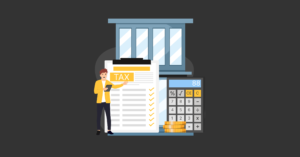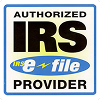Managing small business tax is vital for entrepreneurs seeking to enhance profits and minimize liabilities. If you’re a small business owner facing challenges with tax regulations, you’re not alone. This guide offers essential strategies and best practices to help you navigate your tax responsibilities effectively.
Understanding the various types of business taxes and available deductions is the first step. Your business structure can influence your tax obligations, so it’s crucial to consider how these factors interact. We will also introduce tools that can simplify your tax process. By the end of this guide, you’ll be equipped to devise a tax strategy that leverages credits and improves your financial outcomes. Join us to learn how to succeed in the realm of small business tax!
Best Practices for Small Business Tax
To manage small business tax effectively, careful planning and expert advice are essential. A good first step is to hire an accountant who specializes in small business tax preparation. Their expertise will help navigate complex tax codes and ensure your filings are accurate.
Always ensure that the income you report matches what’s on IRS Form 1099. This is crucial for avoiding discrepancies that can lead to audits. Keeping thorough records of your income and expenses not only supports your claims but also simplifies tax preparation.
Separating personal and business finances is another key practice. This separation establishes clearer records and reduces the risk of IRS scrutiny. Furthermore, understanding the difference between net and gross income will enable you to assess your actual profitability more effectively.
Classifying your business correctly is also important. Different business structures, like sole proprietorships and corporations, come with distinct tax obligations. Additionally, utilizing a reliable payroll service can help manage employee taxes correctly, minimizing potential payroll-related issues.
Regularly discuss your business plans with your accountant to uncover ways to enhance tax efficiency. For instance, exploring capitalization rules for equipment purchases may allow for better expense deductions, leading to tax savings.
By implementing these practices, small business owners can develop a tax strategy that ensures compliance while fostering long-term growth and financial health. In the next section, we will explore specific types of business taxes.
Understanding Types of Small Business Taxes
Understanding the various types of small business taxes is crucial for effective financial management. Key small business taxes include income tax, self-employment tax, employment taxes, and excise taxes, each affecting your business based on its structure.
Income tax applies to your business’s net income. Sole proprietorships, partnerships, and S-corporations report their income on personal tax returns, while C-corporations file separate returns and often face higher rates.
Self-employment tax, which amounts to 15.3% of net earnings, impacts business owners working for themselves by covering both Social Security and Medicare contributions.
Employment taxes, which include FICA and FUTA, are mandatory for businesses with employees. Employers must withhold these taxes and match contributions, complicating the tax preparation process.
Lastly, excise taxes apply to specific goods like fuel and alcohol, making it essential for relevant businesses to understand these taxes. Different taxes come with unique deadlines and requirements, so staying informed is vital to avoid penalties. This knowledge also helps you prepare for potential deductions. In the next section, we’ll explore tax deductions and credits to enhance your small business tax strategy.
Common Tax Deductions and Credits for Small Businesses
Understanding tax deductions and credits is crucial for small business owners to effectively manage small business tax liabilities. Deductions reduce taxable income, while credits lower the total tax owed, both of which can increase profits.
Small businesses can deduct up to $5,000 in start-up costs, including expenses related to creating or researching a new business. Any costs exceeding this amount can be amortized over 15 years. Additionally, the home office deduction is available if part of your home is used exclusively for business. Business owners can opt for a simplified deduction of $5 per square foot (up to a maximum of 300 square feet) or deduct actual expenses, such as mortgage interest and utilities.
For vehicle expenses, you can either use the standard mileage rate of 65.5 cents per mile for 2023 or deduct actual costs if you keep detailed records. Travel expenses, including airfare and lodging for business trips, are also deductible, as long as they are strictly for business purposes. Furthermore, fees paid to accountants or consultants for tax services qualify as common deductions.
By maximizing available deductions and credits, small businesses can significantly lower taxable income and ultimately improve profits. Staying informed about applicable deductions will enhance your financial management.
As we transition into discussing tax strategies and payment planning, remember that effectively utilizing these deductions will shape your overall approach and facilitate smarter financial decisions.
Tax Strategies and Payment Planning
Effectively managing small business tax responsibilities requires strategic planning and timely payments. One important strategy is to make estimated tax payments quarterly. This approach not only helps prevent a large year-end tax bill but also improves cash flow management, enabling owners to allocate resources more efficiently throughout the year.
Additionally, business owners can benefit from deferring income and accelerating expenses. By postponing income receipts to the next year and expediting expenses in the current year, small businesses can lower their taxable income. These techniques not only minimize tax liabilities but also help align with financial goals.
Understanding tax payment schedules is essential. Business owners can choose to make quarterly estimated payments or follow annual strategies based on expected income. Approximately 70% of small business owners prefer quarterly payments to avoid penalties for underpayment. Being mindful of these timelines can lead to significant savings and a smoother tax experience.
In summary, combining strategic planning with timely payments offers small business owners an effective way to manage their tax obligations. Next, we will discuss how to tailor your tax strategy to your specific business structure for enhanced compliance and benefits.
Understanding Small Business Tax Obligations
Understanding how your business structure impacts small business tax obligations is crucial. The four primary structures—sole proprietorship, LLC, C Corporation, and S Corporation—each have distinct tax duties that directly influence your profits. For instance, C Corporations encounter corporate taxes, which can result in double taxation on dividends. In contrast, sole proprietorships and partnerships benefit from pass-through taxation, meaning profits are taxed on the owner’s personal return.
By adapting your tax strategy to align with your business structure, you can effectively minimize tax liabilities. An LLC has the flexibility to choose its tax classification, opting to be taxed as either a sole proprietorship or a corporation, which can help in managing tax burdens and potentially saving money.
Engaging a tax professional is essential for navigating the complexities of business structures and their tax implications. They can provide valuable insights regarding self-employment tax for sole proprietors or the advantages of S Corporation status, enabling reinvestment without incurring additional taxes.
By carefully considering your business structure and corresponding tax duties, you can make informed choices that align with your goals and streamline your tax process.
Next, we will explore how tax technology can enhance small business tax management, simplifying the tracking and optimization of your obligations.
Leveraging Tax Technology for Small Business Tax
In today’s business environment, employing technology for small business tax preparation is crucial. Tax technology simplifies the process by integrating with accounting systems, enabling business owners to maintain accurate records as tax season approaches. This integration ensures easy access to financial data while minimizing filing discrepancies.
Various platforms designed for small business tax filing significantly enhance efficiency. These tools feature user-friendly interfaces and provide step-by-step guidance through tax obligations. For instance, automated tax calculators and document storage streamline the organization of paperwork and calculate estimated taxes in real time, saving time and alleviating stress.
NEXT is a valuable resource for small business tax solutions, offering insights into tax responsibilities and simplifying the filing process. This allows entrepreneurs to concentrate on their business instead of tax concerns, ensuring they meet deadlines and maximize deductions for improved financial health.
In summary, utilizing tax technology empowers small business owners to confidently manage their tax obligations, ensuring compliance and reducing their tax burden.
Conclusion
Managing small business tax is crucial for the success of any enterprise. In this article, we explored essential practices related to small business tax, including various tax types and useful deductions and credits that can help reduce your tax burden. We also discussed effective tax strategies and payment planning tailored to your specific business needs.
As you implement these strategies, consider leveraging tax technology to enhance your process management and better understand your small business tax obligations. Staying informed allows you to meet regulations while fostering financial growth.
Now is the perfect time to take action! Apply these insights to improve your tax position. With the right knowledge and resources, navigating small business tax can be straightforward. Keep learning and stay informed, and your business will thrive!
About x.tax
x.tax offers a streamlined platform for business tax filing, providing efficient services for partnerships, S corporations, C corporations, and estates & trusts.
It matters because it simplifies the complex tax process for small to medium-sized businesses, allowing them to save time and focus on growing their operations. Get started with your tax preparation today!









